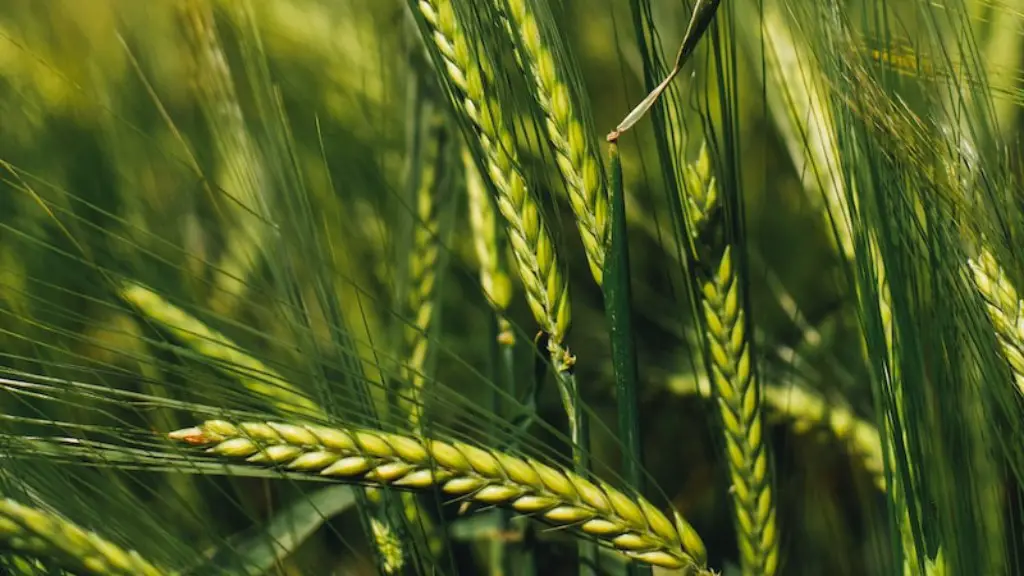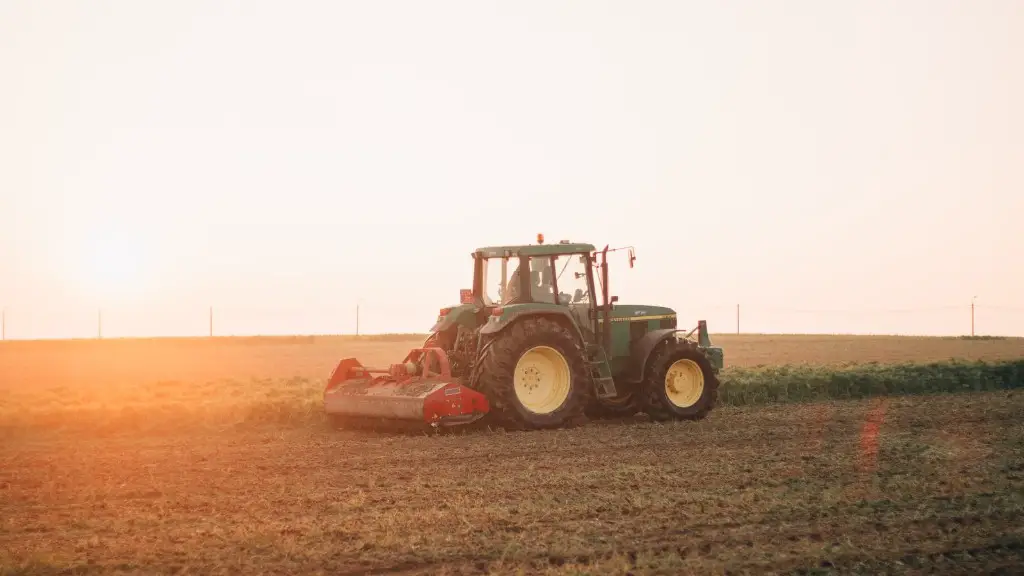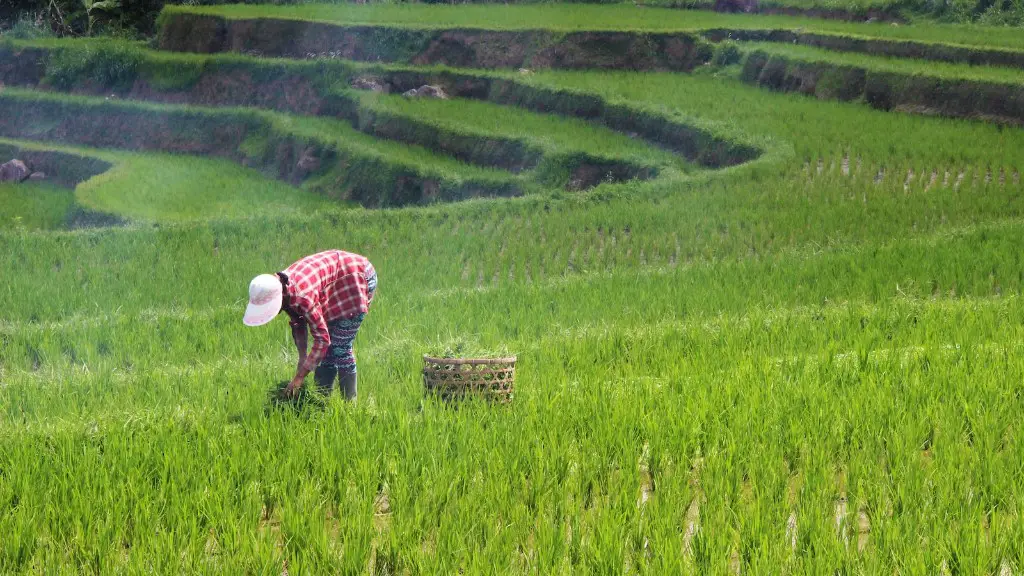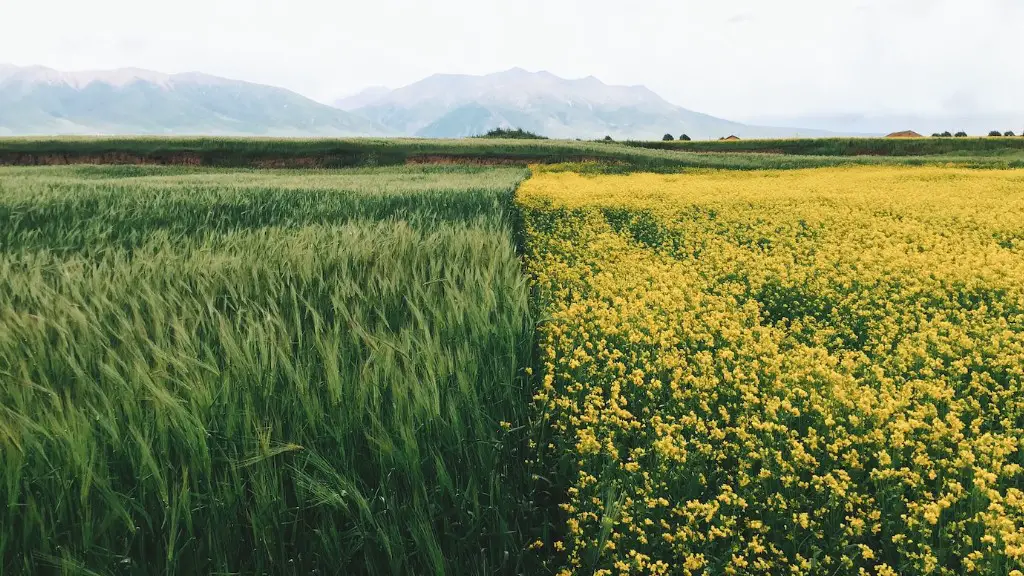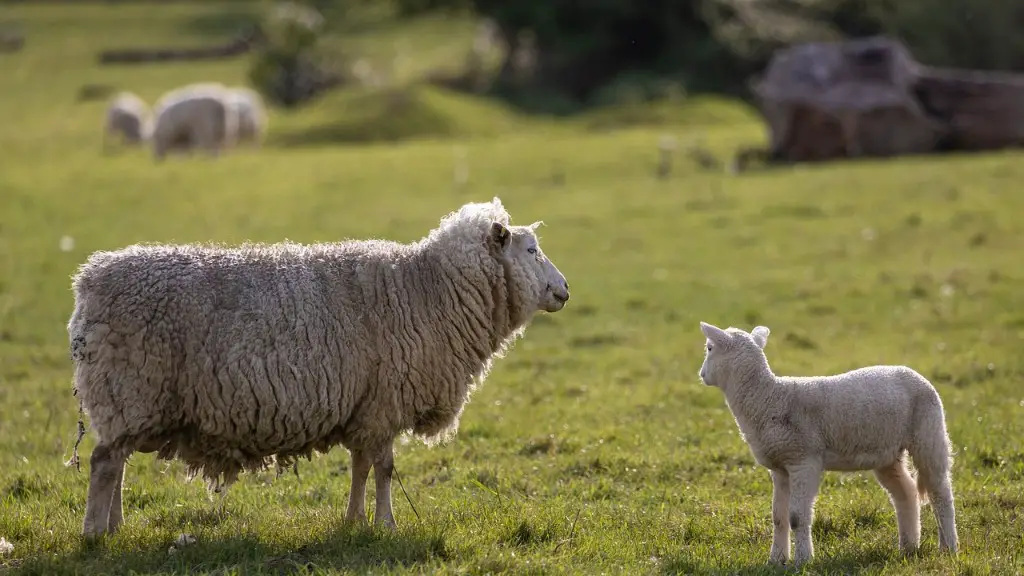The adoption of agriculture has led to four negative consequences: loss of biodiversity, soil degradation, water pollution, and greenhouse gas emissions.
1. The adoption of agriculture can lead to a sedentary lifestyle, which can lead to health problems.
2. The adoption of agriculture can lead to a dependence on crops, which can make people vulnerable to weather and pests.
3. The adoption of agriculture can lead to environmental degradation, as farmers clear land and use chemicals.
4. The adoption of agriculture can lead to social inequality, as those who control the land and crops become more powerful.
What are the negative effects of agriculture?
Agricultural contaminants, including pesticides, nitrates, and phosphorus, impact ground and surface water quality, affecting both urban and rural communities. Synthetic fertilizers deplete soil health and require intensive use of fossil fuels to produce. These impacts underscore the need for sustainable agriculture practices that protect and restore water resources.
Agriculture is one of the main drivers of environmental change. Five of the most significant environmental effects of agriculture are soil fertility loss, eutrophication of water bodies, deforestation, climate change and pesticide pollution.
Soil fertility loss is caused by the depletion of nutrients in soils due to repeated cropping. This can lead to reduced crop yields and increased soil erosion.
Eutrophication of water bodies occurs when agricultural run-off enters waterways and increases the levels of nutrients such as nitrogen and phosphorus. This can lead to algal blooms and reduced water quality.
Deforestation is often caused by the conversion of forested land to agricultural land. This can lead to habitat loss and climate change.
Climate change is caused by the emission of greenhouse gases from agricultural activities such as livestock farming and the use of fertilizers. This can lead to global warming and climate change.
Pesticide pollution occurs when pesticides used in agriculture contaminate water bodies and soils. This can lead to health problems for people and animals.
What are 5 negative impacts of conventional agriculture practices
While conventional agriculture may have some benefits, it also causes increased greenhouse gas emissions, soil erosion, water pollution, and threatens human health. Organic farming, on the other hand, has a smaller carbon footprint, conserves and builds soil health, replenishes natural ecosystems for cleaner water and air, all without toxic pesticide residues.
Agriculture plays a significant role in environmental degradation. The main issues caused by agriculture include climate change, deforestation, biodiversity loss, dead zones, genetic engineering, irrigation problems, pollutants, soil degradation, and waste. All of these problems contribute to the degradation of the environment.
Climate change is one of the biggest problems caused by agriculture. The burning of fossil fuels for farming releases greenhouse gases into the atmosphere, which contributes to the overall warming of the planet. Deforestation is another major issue caused by agriculture. The clearing of land for farming purposes results in the loss of trees, which are a major part of the Earth’s carbon sink. This contributes to the greenhouse effect and climate change.
Biodiversity loss is another significant environmental issue caused by agriculture. The loss of biodiversity can be caused by the loss of habitat, the introduction of invasive species, and the overuse of resources. All of these factors can lead to the extinction of species. Dead zones are another environmental issue caused by agriculture. Dead zones are areas of the ocean where there is very little oxygen. This is often caused by the runoff of fertilizers and other chemicals from farms.
Genetic engineering is another controversial issue in agriculture. This is the process of manipulating the genes of
What are 3 problems of agriculture?
Setting the table to address the triple challenge means creating a plan that addresses all three challenges at the same time. This can be done by looking at ways to increase food production while also protecting the environment and ensuring farmers have a good livelihood. It will require cooperation from all sectors and a commitment to sustainable practices. But if we are to meet the needs of a growing population, it is essential that we take on all three challenges together.
The agricultural revolution was a time of change for humans. It led to a rise in societal inequality, as well as a decline in nutrition and an increase in infectious diseases. The agricultural revolution also had a variety of other consequences for humans, including a change in the way we live and work.
What is the biggest problems in agriculture?
There is no one-size-fits-all answer to addressing the multiple challenges faced by the agriculture sector today. However, some key steps that need to be taken in order to cope with climate change, soil erosion and biodiversity loss, and satisfy changing consumer tastes and expectations include:
1. Increasing investment in farm productivity. This will help to ensure that farms are able to produce more food of higher quality, while also becoming more efficient and resilient to climate change and other challenges.
2. Diversifying farm operations. This can involve growing a wider range of crops, raising different types of animals, or investing in agroforestry and other forms of sustainable land management.
3. Improving post-harvest handling and storage. Losses of food due to spoilage and wastage are a major issue in many developing countries. investments in infrastructure and improved practices can help to reduce these losses.
4. Enhancing value chains. By working more closely with processors, retailers, and other actors in the food system, farmers can add value to their products and better meet consumer demands.
5. Promoting climate-smart agriculture. There are a range of practices and technologies that can help farmers adapt to climate change and reduce greenhouse gas
There are many reasons to relocate to Canada today! Some of the reasons include the lack of modernization and mechanization in many parts of the world, illiteracy, ignorance, the lack of funds, poor infrastructure, and the absence of modern storage and processing facilities. Additionally, many people are losing their land to natural disasters, and they don’t have access to land or fertilizers.
What is the main problem of agriculture
Agricultural land is disappearing at an alarming rate. According to the United Nations, the world has lost the equivalent of one soccer field of agricultural land every minute for the last 40 years. That’s a total of 4 million hectares (9.9 million acres) per year – an area twice the size of Belgium.
The main cause of this loss is conversion to other land uses, such as urbanization, mining, and dams. Other causes include deforestation, soil degradation, and climate change.
This loss of agricultural land is a major problem because it will make it more difficult to produce the food needed to feed the growing human population. The United Nations estimates that the world will need to produce 70% more food by 2050 to feed 9.8 billion people.
So what can be done to stop the loss of agricultural land?
One solution is to better manage the land we have. This includes using more efficient irrigation practices, improving soil health, and using agroforestry systems.
Another solution is to reallocate land from other uses back to agriculture. This could involve converting abandoned farmland back to productive use, as well as creating new agricultural land. For example, China has been convertingsome of its desert
Animal agriculture is a controversial topic for many reasons. Some argue that it increases the risk of animal cruelty, while others argue that it negatively impacts small business agriculture. Additionally, there are environmental concerns associated with animal agriculture, as well as health problems that can be caused by consuming low-quality food.
What are 4 potential risks of modern agricultural practices?
The study found that there are four major impacts of climate change that are visible and have an impact on people’s lives. These impacts are occupational hazards, vector borne diseases, changing nutritional status, and inequity in development. Each of these impacts have different effects on people, but they all contribute to the overall negative impact of climate change.
The disadvantages of organic farming can be significant. Farmers may not receive government subsidies, and they may have to use more expensive organic pesticides and other organic chemicals. In some cases, organic farmers may not be truly organic, due to a lack of infrastructure and knowledge. Organic farming can also be more work, as farmers have to make more observations and take extra care to ensure that their products are truly organic.
Which were consequences of the development of agriculture
It is true that the development of agriculture included some negative outcomes. For example, the rise of epidemic diseases and the origin of a hierarchical class system marked by great differences between rich and poor. However, social scientists argue that these negatives outcomes were outweighed by the positives, such as the increased nutrition and the development of more stable societies.
The Agricultural Revolution was a period of unprecedented growth in agricultural production and technological advancement. This period saw the development of new agricultural practices, the rise of new crops, and the spread of new technologies. These advances led to unprecedented population growth and the development of a coherent and loosely regulated agricultural market.
What are the negative and positive impact of agriculture to the environment?
While agricultural practices can cause negative impacts on the environment, such as pollution and degradation of soil, water, and air, they can also have positive impacts. For instance, agriculture can trap greenhouse gases within crops and soils, or mitigate flood risks through the adoption of certain farming practices.
Drought, flooding, pest infestations, crop price crashes and other disasters pose a serious risk to growers using farming practices where they rely heavily on one crop. Diversifying one’s crops is a key way to mitigate these risks, as it lessens the impact of any one disaster on the overall farm.
What were some of the negative effects of plantation agriculture
Although plantation agriculture is criticized for its lack of sustainability, there are many benefits to this type of farming. Plantations typically have a high yield, which helps to feed a large population. They also require less labor than other types of farming, which can be a benefit in areas with a shortage of labor. Additionally, plantation agriculture can help to prevent soil erosion and pollution.
It is clear that education is key to modernising farming methods and improving the agricultural sector in Nigeria. However, the lack of mechanized equipment and illiteracy of most farmers presents a challenges in terms of implementing these changes. Many farmers still rely on traditional methods, which often leads to problem in agricultural marketing. Improving education levels amongst farmers is essential to overcoming these challenges.
Warp Up
-Loss of genetic diversity
-Increased susceptibility to disease
-Increased dependency on a single food source
-Higher incidence of conflict
The adoption of agriculture has led to a number of negative consequences, including the loss of natural habitats, the increased use of pesticides and herbicides, the overuse of water resources, and the depletion of soil nutrients.
